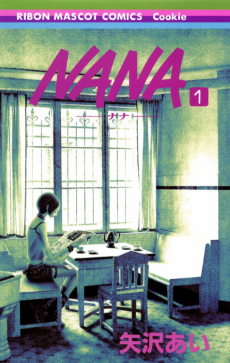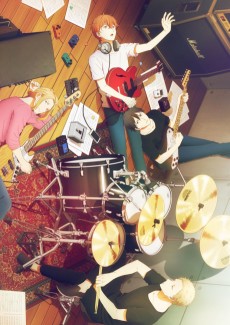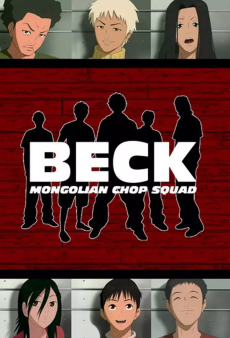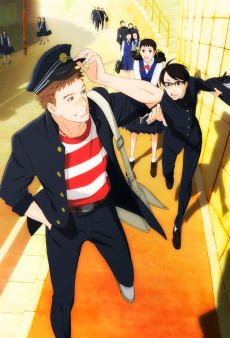NANA
STATUS
COMPLETE
EPISODES
47
RELEASE
March 28, 2007
LENGTH
23 min
DESCRIPTION
Two twenty-somethings seemingly share nothing in common apart from their first name, but a chance meeting on a train bound for Tokyo sets Nana Komatsu and Nana Oosaki on a collision course with destiny. Nana Komatsu, a love-at-first-sight dreamer, aims to find enduring happiness in the big city. Nana Oosaki, neo punk rock vocalist, pursues her burning ambitions of musical stardom and worldwide fame. As their fates increasingly intertwine, they each chase their dreams — until the harsh realities of life in big city Tokyo threaten to tear everything apart.
(Source: Sentai Filmworks)
CAST
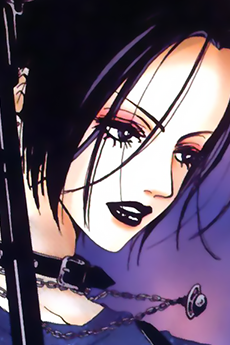
Nana Oosaki

Romi Park
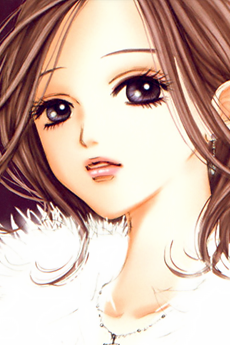
Nana Komatsu

KAORI.
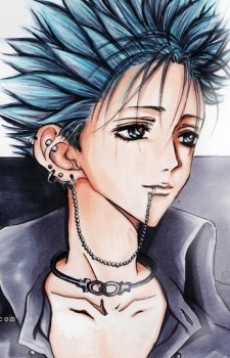
Shinichi Okazaki

Akira Ishida

Yasushi Takagi
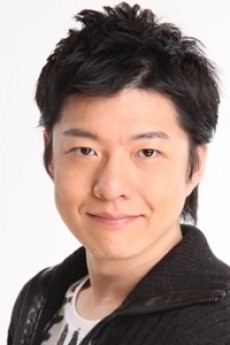
Yoshihisa Kawahara
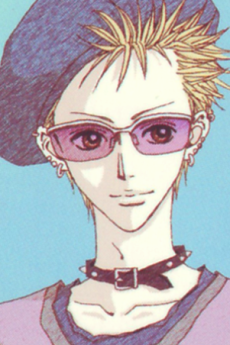
Nobuo Terashima

Tomokazu Seki
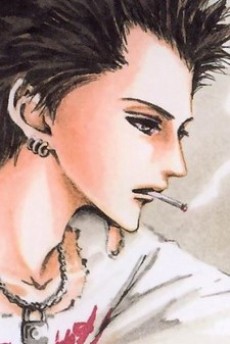
Ren Honjou

Hidenobu Kiuchi
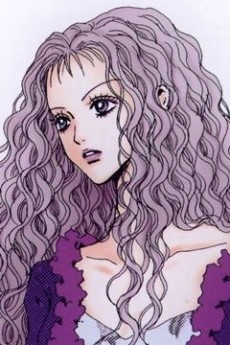
Layla Serizawa

Aya Hirano
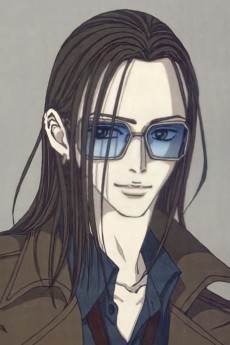
Takumi Ichinose
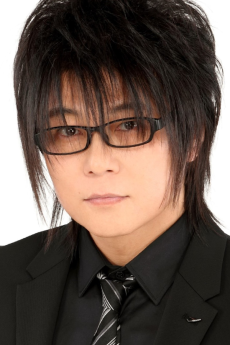
Toshiyuki Morikawa
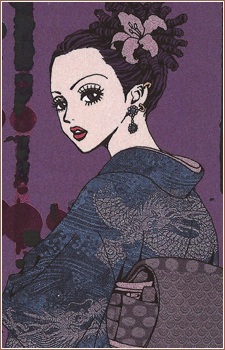
Junko Saotome

Takako Honda
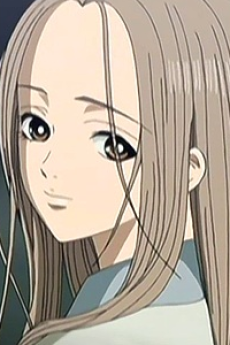
Miu Shinoda
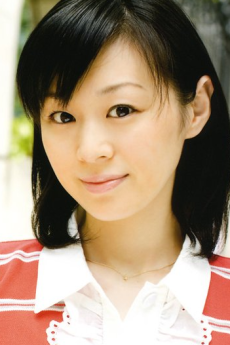
Saeko Chiba

Kyousuke Takakura
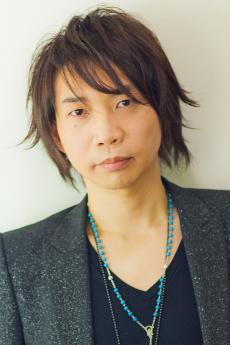
Junichi Suwabe
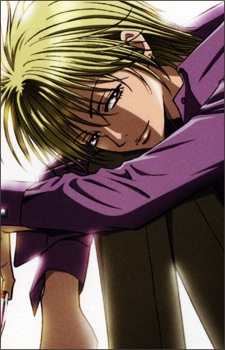
Naoki Fujieda

Anri Katsu
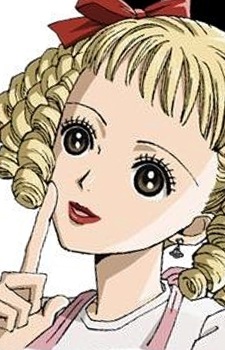
Mai Tsuzuki

Mika Kanai

Kouichi Satou

Keisuke Fujii

Asami Matsumoto

Reiko Suhou
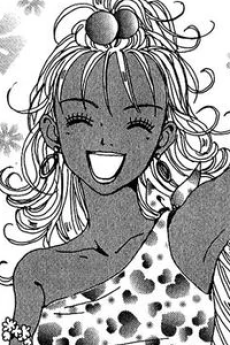
Nami Komatsu

Chika Fujimura
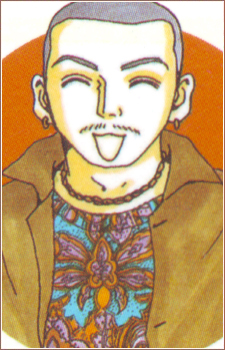
Ginpei Shiroboshi

Fumihiko Tachiki
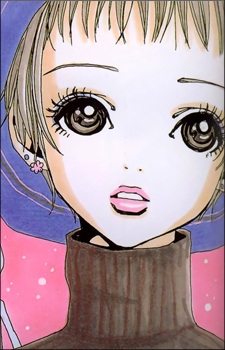
Sachiko Kawamura

Megumi Kojima
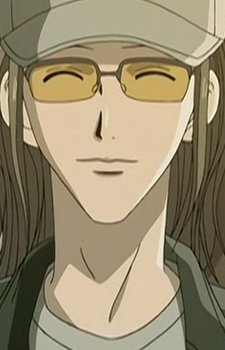
Keiichi Mizukoshi
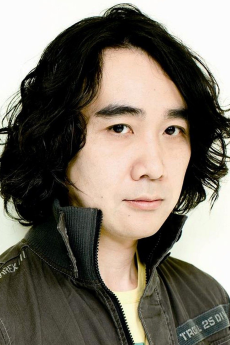
Kenji Hamada
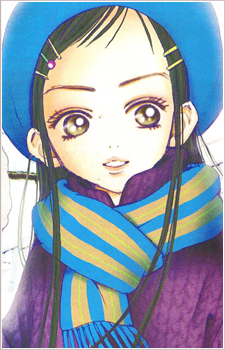
Satsuki Ichinose

Yuuko Katou
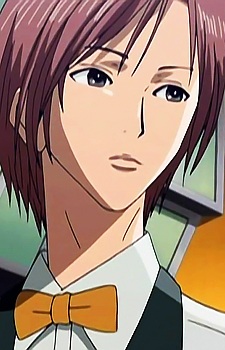
Shouji Endou
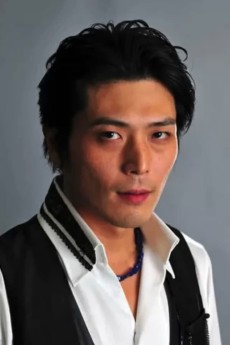
Hiroki Takahashi

Andou
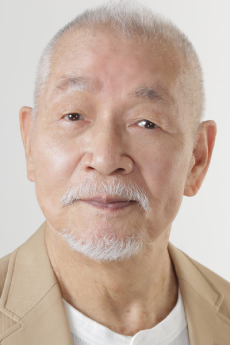
Kenichi Ogata
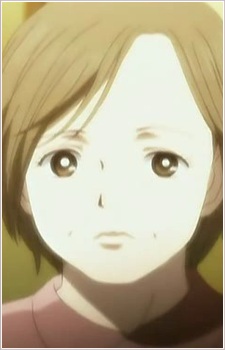
Natsuko Komatsu

Akiko Hiramatsu
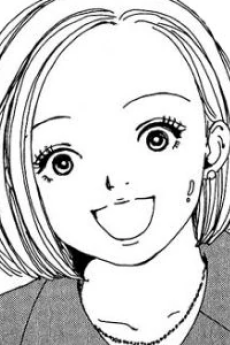
Nao Komatsu

Akemi Okamura
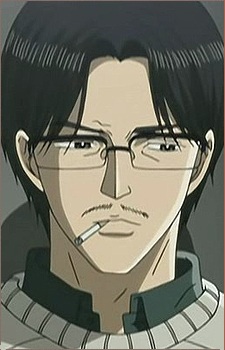
Matsuo
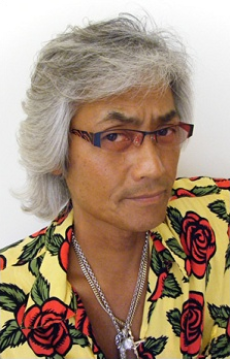
Kazuki Yao
EPISODES
Dubbed

Not available on crunchyroll
RELATED TO NANA
REVIEWS

Fleur
90/100NANA as a work fully invokes the power of pathos while taking “drama” to new heights.Continue on AniListThe background of NANA feels like an endless white night. Things seem to be continuously in motion; beginnings and endings wrapped up in an infinite wave of falling snowflakes waiting to melt into each other. The forefront sits in perpetual twilight; characters seem to be eclipsed by their own shadows with barely enough to catch a glimpse of who they are. The entire landscape depicts the frigidity of life rising from frosty gales to a calmer ether, only to revert to stormier lands. Movement here isn’t linear. Nothing is. NANA, as a whole, is pure kinetics; an explosion of emotional energy circling, clashing and always in motion. This is all infused as a careful exploration of fate, transience, and relationships in a modernized setting. NANA as a work fully invokes the power of pathos while taking “drama” to new heights.
Based on the acclaimed manga by Ai Yazawa, Studio Madhouse adapted NANA into a 47-episode series. The story follows the pivotal journeys of two incredibly “different” girls bound by the same name and circumstance. Nana Osaki and Nana Komatsu are planets apart yet exist in the same sky, tethered by each other’s gravitational force. Nana Osaki is externally a cool cat, adorned in Vivienne Westwood – the quintessential punk queen with a voracity for musical success. Whereas, Nana Komatsu, who garners the nickname “Hachi”, is a dreamer who sees, breathes, and dreams in pink; her ambitions don’t extend beyond finding her fairytale romance. Both are headed to Tokyo to pursue their various dreams (one to establish the perfect domestic life with her boyfriend, while the other wants to form her band and actualize her musical ambitions). Fate brings these two together as roommates and the narrative unfolds to reveal the tender anatomy of relationships and the power they have to shape people and their respective worlds – for better or for worse.
Then, what makes this work more than a seemingly run-of-the-mill drama about two girls discovering the pains and gains of life? What does it possess that other philosophized-by-life dramas don’t? The answer is simple: understanding. Yazawa writes candidly about people and the world, not as a spectator, but as someone clearly living in it. Nana portrays an acute understanding of how people are and their complexities that are simply written off as natural proclivities. There is reason even if Fate seems to play some indiscernible part. There is meaning even if chaos seems to rule it out. However, what’s impressive is not the mere incorporation of “understanding”, but “HOW” the work manages to create a stylized drama that is as visceral as the cold touch of the wintry night that it starts on.
Even with its luridly icy sensation, NANA is never detached or impersonal. It may be highly temperamental, but it never indulges in its own despair. It’s often cold but driven by the innate warmth of its living, breathing cast, who aren’t just personifications of suffering or “insert-theme.” This is partly what makes it sublime in its approach to drama. The drama isn’t a descriptor or a simple add-on. An event doesn’t happen so it can be “dramatic.” It doesn’t happen only in effect. There is an ebb and flow; a serpentine path painted with emotional uncertainty. The characters drip with it, but the difference is that they own it. There is accountability here. Events happen for the characters as an extension of them. They don't occur only as a platform for causality (which makes all the difference).
Considering how easily emotional appeals can be manipulated to rehash emotional evocations, NANA remains earnest. There is a purpose in isolating feelings; to let the characters lather in them, not just merely show them; to explore them to such a degree that the feeling/the state itself becomes autonomous. Loneliness becomes its own character, as does love, as does happiness. It is as transient as it is eternal. The characters are so refined that it’s hard to separate them from the elements that define them. Drama is all about nurturing these humanistic nuances and intricacies in its own habitat. Yazawa knows this all too well. Instead of showing these conditions as mere outputs of a decision or situation, they exist on an aqueous spectrum blurring the lines used to divide them AS a part of the being that gives them shape and substance. Then, causality only becomes a mean, just like Fate, just like chaos, not the end. Ultimately, that’s what makes NANA idyllic as a drama, and even more so, as a story driven by life.
Holistically, NANA showcases its prowess for drama through natural rawness, unflinching realism, and scope for understanding its subject matter(s) on a cellular level. The picture is impressive, but what makes it a pinnacle of its kind are the details – the pieces of storytelling that it utilizes to convey its narrative.
First, there is perspective. Works revolving around the musings of “life” usually have a philosophy driving their vision of it; Nana has perspectives. What the series employs are contrasting, continual planes that converge with each other to give a wholesome view through Nana and Hachi. Their interconnectedness matters more than their seemingly opposing natures. The perspectives confess, observe, share, and exploit the hearts of the events and the characters. The episodes start with a stream of confessional thoughts spilling onto the screen and morphing into the events that transpired them. Structurally, this does two things: One, it offers balance. Two, it contextualizes. This approach helps establish reliability because there are two narrators. This naturally aids in mitigating the problem of the unreliable narrator. The image becomes complete even if it is in broad, disconnected strokes. This show is unwavering in its personalization, and both perspectives will establish that with an uncanny persuasion.
Additionally, there is the context. The synergy between Nana and Hachi creates its own ecology. This isn’t something that is easily fabricated by romanticizing the power of friendship. It is pure symbiosis, of two lives reflected through a continually cracking mirror. As the story progresses, the bifocal gaze of the two melds into one. Even the apparent contradictions between the two begin becoming whole. At first, Nana and Hachi seem to complement each other but gradually start inverting their traits. The evolution of each character is highly dependent on this progression which is why context is crucial. Hachi and Nana, along with the supplementary cast provide this even when the truth is far from being transparent. Although, getting to the truth feels trivial anyway. What the structural decisions do at their very core is reinforce the means (never the end). The importance of every word, emotion, and event that happens is preserved and with it, parts of the individual and their entire world for that moment in time.
That is what matters. These moments where time comes to a standstill and that instance singularly defines the world. Incepted through bursts of chemical reactions - frozen yet in flames - quietly burning everything around them. A tempest consumed by shadows of the past and uncertainties of the present. Where entropy orchestrates all and everything seems to fall into contradiction; where dreams are simply just dreams; where expectations are merely mesmerizing mirages in the distance; where love isn’t a fairytale; where the importance of understanding each other becomes more important than anything else that could ever exist. All of this is the essence of NANA’s characters. Hachi, Nana, and the rest of the cast are crafters of their own moments. They coat the ashen night-sky with them. Constellations composed of moments; visual strings connected by the last and the next, in a cycle of change. It is through these anecdotal glimpses that these characters take form.
The characters embody this candid usage of memory, singularity, and understanding. There is much emphasis on individual events and actions. These subtleties develop to reveal how the characters are constantly at odds with themselves (even when the tone seems to be lighthearted, and all seems to be well). This is why the symbiosis between Nana and Hachi becomes so vital because their moments are not only reflected in each other but formed by each other. Additionally, it’s their relationship that breaks the feigned insularity of the other characters. That doesn’t mean they don’t have their own identities as does the rest of the cast. Everyone has a dynamism to them: their own palettes, shades, and gradients. Good. Bad. These words have no place here. Bound by insecurities, identity, and passion; constantly seeking themselves in a game of hide-and-seek, these characters are more than just adjectives and a system of traits. The show doesn’t waste time in judging its characters because it has so much to say about them.
Even then, the one that seems to be the most misunderstood and unfairly scrutinized is Hachi. She is by far the most superficially flawed character. That is never shied away from. That makes her easy to hate or dismiss as a standard shoujo lead. Hachi is perplexingly idiotic. She flings herself into the worst situations and finds herself in a never-ending state of ambivalence. Not only that, she creates disharmony between many other characters like Nana and her band members. Unlike, Nana who is easily likable due to her strong candor, intense personality, and devotion to her principals and goals, Hachi is unstable, unreliable, and utterly whimsical.
What really substantiates her as a compelling character is how she is unapologetically grounded in her humanistic tendencies and flaws. This gives her a kind of awareness that the other characters, except for Yasu (Nana’s longtime friend and drummer for her band), just don’t have. Everyone acts like they are in control, regardless of how fragmented their reflection is. Where everyone else is running from the phantoms they fear, Hachi absorbs them. Nana is about as broken as they come but constantly hides her inner turmoil; stubbornly trudging through hardship and heartbreak. Pride means everything to her. Nana survives by hiding her true feelings, while Hachi lives by constantly embracing them. Hachi is fundamentally an honest character. She subconsciously recognizes her lack of control and her predispositions. Though, she often seems to be driven by her pseudo-idealization of romance which often recycles itself in ways worse than the last. She owns up to her wretchedness and attempts to reconcile; to change. Though, this doesn’t make her immune. Her awareness is often drowned out by her naivete resulting in incrementally worse situations (almost to the point of becoming stuck in a self-prophetic rut). Still, amidst it all, she remains transparent. There are no contrivances necessary with her. Transparency can be far more compelling than clarifying opaqueness, for what lies under the milky sheath is never truly clear.
Conclusively, the characters are superb because they are etched with all the shades of humanity. The physical and psychological are all accounted for. Character and emotion; feeling and action; change and stagnation; a sincere lust for meaning and acceptance are all encompassed by these characters. The best part is that there is no room to judge. The hearts of these characters beat in such sync with our own; that the only thing that’s left is empathy and understanding even if it shrouded in frustration.
All this is packaged visually by Madhouse. They did an exceptional job adapting this series. There is a certain grittiness to the visuals and atmosphere that keeps the show from wandering too deep into the typical shoujo aesthetic. The series depends heavily on delivering rawness and realism. Otherwise, there is a nice balance of bubbly, bright scenes (in all their shoujo glory) contrasted with the necessary grunge required to keep the actual spirit of the story intact. The characters' idiosyncrasies are also poignantly preserved. The aesthetical and auditory direction kept the maturity of NANA blossoming throughout the show, despite its shoujo dispositions.
One further thing to note is that the manga is still publishing. The anime ends on a controversial note. For many, it leaves much to be desired. In the context of the story and especially how its told, the ending works. The story moves retrospectively. It doesn't bring the necessary closure needed to substantiate all the complexities it introduces, but it provides enough insight into what's important. It leaves room for more because there is more, but keeps the sanctity of the story still flourishing onwards. Another criticism it has received is its slow pacing. The pacing is slow as this isn’t a show focusing on high-octane plots. It is about people. It seasons itself over time, maturing with its characters, and their lives. It never feels redundant nor inflated. There are silly subplots but they aren’t superfluous; for they always work in tandem with a character. As aforesaid, the show never treats anything as an end. Sometimes things happen with no end and sometimes things spontaneously end. The point is that there is something concrete beneath it which ultimately sheds light on those involved.
That is what drama is.
Time lost in an emotive frenzy. Moments molded from remnants of what passed. Transformed into what is to come. Even in the calm, something moves. The scenery here is indeed a bit too chilly sometimes, laden with the melancholy of yesterday and the loneliness of tomorrow. Even so, the present waits in an ethereal stasis; attempting to understand itself. Remembering, being, and accepting; it’s all here, often presented as unyielding blizzard internalized by those who live it. As the single snowflake finally dissolves upon touch into a pool of white, to become something more than just one, those walking in NANA also find themselves inseparable from those around them. Nothing is perfect here. Nothing needs to be.
For what happens here is relentlessly flawed yet at the same time, essential and real. What happens here is, life.

Godsen
100/100NANA , one of the most refreshing and unique romance dramasContinue on AniListDisclaimer: This review does not contain spoilers.
Do you want an action packed series that will make any shounen fan cry from excitement? Are you looking for a comedy that will make you piss your pants laughing? Well NANA is none of those things. But if you are looking for a realistic romance drama series with rock music vibes, NANA is your jam. Forget all your 13 ep school romcoms with the love triangles and a kiss on the cheek or handholding as the peak of the series. Forget all your predictable drama shows that build up towards an ending that you can guess from the first 3-4 episodes. This show closely follows the life of all the characters for prolonged periods of time so you can see all their happy moments and them succeeding but also their dark and sad ones.
The basic synopsis is simple (and you can find it in any anime page or wikipedia so i'll be short about it), 2 girls named NANA happen to meet on a train, one of them is a talented musician (vocalist) and she is cool,calm and collected and the other one is childish and wants to leave a rose coloured life with her fiance in Tokyo. Eventually the 2 girls grow pretty close and Nana Osaki (the vocalist) forms a rock band with other lovable characters you meet throughout the show
Let's break the show into the basic interesting things that make it different to other shows and state their pros and cons:
Music: Classic J-rock with a female vocalist and some english lyrics, borderline hard rock (i'm not that well educated on music to explain it better than that but i can give you an example:
Click here to get a music video of one of the most characteristic song of this anime.This youtube video has disabled comments to avoid spoilers.
Personally it's my favorite type of music so it's a big plus for me but it's not the only thing this show has to offer.Drama: There are a lot of heavy dramatic moments spread evenly throughout the anime so it's not the classic format of everything setting for a dramatic ending to get the viewer's high rating cause of feels at the end
Romance: Now we enter the most interesting and unique aspect of NANA for me. The adult cast makes for a show that isn't afraid of breaking taboos and the classic mold of romance anime, meaning it's not afraid to show sexual relationships without being 'ecchi' (a thing i found surprisingly uncommon in most of the anime i watched, even when the cast was age appropriate and it differs a lot to most American TV-shows). The romance feels very realistic cause it shows a lot and the bad aspects of romantic relationships too.
Characters: Now we are getting to a very divided subject among the NANA watchers. Be warned, the show isn't afraid to make its characters take wrong decisions sometimes or not be a "perfect" person. You may or will most likely dislike some of the characters in the proccess, but that's life. If you can't handle the realism and want 'Mary Sue' and 'Gary Stu' characters NANA is definitely not for you.
Arstyle: Classic shoujo artsyle with big eyes and eyelashes and skinny af bodies that might not be everyone's taste. It's unique but i wouldn't say there are ugly frames or bad animation in any part of the show especially for a show that isn't that recent. I personally loved the artstyle and though it fit some of the 'more bubbly' moments of the show without ruining the impact of the sad moments
TL;DR (cause this is getting long)
NANA is one of my favorite anime and that becomes especially apparent when i watch anime that are supposed to be of similar type/genres
Pros: realistic romance, banger music, a breath of fresh air for romance in anime, one of the best shows about realistic friendship through easy and tough times
Possible cons (also consulting non-fans of the show too) : length (not the length of One piece but for a romance show 47 eps are not a few), some stupid character decisions, shoujo artstyle that isn't the most mainstream one.
Yahshuhaz
95/100346.- Dis-moi Nana, tu te souviens de notre rencontre ?Continue on AniListNana et Nana.
Une histoire qui parait d'un regarde extérieur anodin mais qui est tellement magnifique.
La transition de ma review entre Fruit basket et Nana est parfaite car on observe 2 histoires similaires dans le fond, mais différentes car on touche ici un public beaucoup plus large.___Que raconte donc Nana ?___ Nana Komatsu et Nana Oosaki sont deux filles qui sont totalement différente mais vont tout de même devenir deux amie. Ici, on ne parle pas d'une simple amitié mais a la limite d'un familiale qui vont faire avancer les deux filles, elles sont comme le Yin et le Yang.
elles vont emménager a Tokyo et vont vivre leur vie : Osaki est une chanteuse Punk qui veut devenir une star, alors que Komatsu veut simplement rejoindre son copain et apprendre a vivre indépendamment. Le fais que leur vie s'entremêlement va pouvoir les rapprocher comme deux sœurs mais leur faire terriblement de mal : En effet je vais essayer de spoil le moins possible mais cela reste dur. Dans cette histoire, on a l'habitude d’être dans la tête des personnages et de savoir quoi il pense : Comme exemple qui illustre bien la chose prenons Koyomi araragi de Monogatari on sais tout ce qu'il pense et dans Nana on est dans la tête de Komatsu et de manière plus ardu encore, on connais chaque une de ses pensées on a l'impression qu'on connais Komatsu depuis toujours ! On s'identifie a elle on compatis en suivant ses aventures.. Cependant a partir de l'épisode 30 on ne vas plus être dans la tête de Komatsu mais de Osaki se personnage étais intriguant,charismatique, magnifique mais très mystérieuse (heureusement que leur passé est divulgue des le début cela nous permet de créer des liens déja profonds avec les deux personnages) .Cela créer une nouvelle approche du personnage et nous la montre sous un angle beaucoup plus intime et mon dieu que je me suis identifié en elle. On sais quelle a le cœur sur la main, quelle pense a tout le monde que malgré ses aires de dur a cuire (alors que Komatsu est beaucoup plus énergétique, tête en l'air!) elle est empathique. Pour revenir au changement de Narrateur qui passe de Komatsu a Osaki cela est bien orchestrée : A partir du moment ou Komatsu a su quelle étais enceinte et de tout ce que cela allais impliqué, il y a eu une déchirure en elle qui la beaucoup touchée.. Le fais de plus la suivre nous met a la place de Osaki on ne sais pas quoi penser on a tellement de question et cela rend la narration encore plus qualitative sérieusement on est tellement plonger dans l'intrigue qu'on veut a la limite savoir ce quelle a dans la tête c'est assez fort de la part de notre chère Ai Yazawa.
Les thématiques abordés dans Nana
Sont profonde et relève belle est bien d'un josei car on arrive a un stade ou de vrai problème d'adulte arrive : dépression non proclamée, l’adultère, l'indépendance mais surtout les relations qu'on entretiens avec nos proches et je peux vous assurer que Nana nous montre cela avec Intelligence.
Comment j'ai été triste tout l'anime de voir que les deux Nana n'arrivent pas a dire les choses en face par peur des réactions par peur de briser quelle que chose.. La frustration de se rendre compte des choses importantes une fois quelle ne sont plus la, que un mot aurait pu changer une situations.
Le passage de Nana qui ma beaucoup touchée et qui m'est personnelle est a l'épisode ou Nana fais de l'hyperventilation et elle explique son ressentis sur sa vie actuel avec cette phrase :

accompagnées de phrase qui personnellement ont beaucoup de sens pour des personnes qui vit ce que Osaki subit dont moi rend le passage est excellent.
La relation Osaki et Ren est tellement belle que triste de voir un amour incassable se transformée en hésitation, une détresse mais qui a une évolution tout le long de l'anime..
J'ai parlé des sujets les plus importants et j'en oublie surement car il y a tant de chose a dire mais a présent
Que penser des personnages ?
Les personnages principaux sont souvent ceux ou je m'attarde le plus mais ici le cast est de qualité. Ren, Yasu on va parler des principaux secondaire car ils ont un rôle énorme.
Ren est un personnage terre a terre mais de plus en plus intriguant que sa relation avec Nana avance, il n'a pas finit son développement mais il reste un personnage ou je meurt d'envie avec Yasu d’être dans sa tête.
Yasu est le grand frère sage de l'anime : Il porte tout les poids sur ses épaules et on le voit simplement une fois déprimé pour un personnage clés mais je vais éviter de trop spoil. Je vais m'en tenir la mais la review sera centrée limite que sur les personnages secondaires car ils sont trop intéressant.
Shin, est un personnages qui ma beaucoup plus, il est jeune et un prostitué ce qui change beaucoup les codes car on le voit que il est d'une maturité frappante comparé a son pote Nobuo.
Nobuo d'ailleurs est la personne qui correspondrais le mieux a Nana mais les quiproquo, la peur de confronter, de vouloir aimer change beaucoup de paramètre..
Il y a tellement de personnage intéressant et en seconds plan comme Jun l'ami de Komatsu et son copain qui sont présent tout le long de l'anime et qui donne des points de vue intéressante sur Komatsu : Ils ne sont pas toujours d'accord avec elle mais débattent des choix quelle fais etc..
Shouji va être la souvent mais disparaitre pour une raison mais ce que j'ai aimer c'est le revoir, car on aurait pus le dégager mais non il fais partis intégrante de l'histoire.
Il y a tellement de chose a évoquer sur tout le monde que la critique deviendrais trop longue sachez juste que les personnages sont bien écrits et proposent vraiment de bonne réflexion
Anime de musique = Ost qualitative ?
Bon sang.. Les ost sont d'une puissance je vous le promet si vous êtes amateur de ost, Nana est vraiment incroyable : Que ce soit les opening ou les endings entre des paroles qui parle vraiment de ce que ressent les personnages ou encore le visuel de celle ci je peux que vous conseillez : Si vous êtes curieux regardez a 0:50 la puissance de la musique plus voir nana secouez la tête créer une atmosphère que je trouve incroyable..
Madhouse au commande un visuel de folie ?
La question fâche les personnes ici. J'ai trouvé l'anime magnifique mais littéralement, certes ce n'est pas Fate mais le design est très plaisant et donne encore plus un trait de caractère a l'univers car il faut encore aller au moment ou l'anime est sortis.___Et moi ?___ Nana a été une grande expérience pour moi. Il rentre dans mon top 5 anime of all time et le meilleurs slice of life que j'ai vu de ma vie actuellement.
Il m'a tellement touchée que je vais suivre la suite du manga car même si il y a un hiatus je veux continuer et savoir ce qu'il se passe après l'anime. Je le recommande a tout le monde de ma tranche d'age ou en mesure de comprendre les relations d'adultesMerci Ai Yazawa de ce bijou et j’espère de tout cœur que vous allez continuez.
Je suis heureux d'avoir pu voir Nana.
Si vous avez lu la review au bout déjà euh merci je les fais principalement pour moi mais celle ci est affreusement longue et ça me touche de voir qu'on me suit comme c, manifestez vous si vous avez tout lu!
SIMILAR ANIMES YOU MAY LIKE
 ANIME DramaCarole & Tuesday
ANIME DramaCarole & Tuesday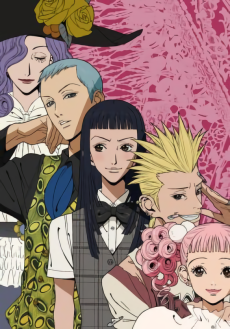 ANIME ComedyParadise Kiss
ANIME ComedyParadise Kiss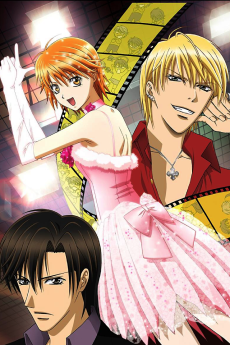 ANIME ComedySkip Beat!
ANIME ComedySkip Beat!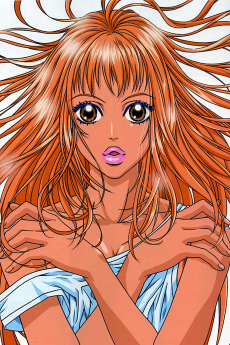 ANIME DramaPeach Girl
ANIME DramaPeach Girl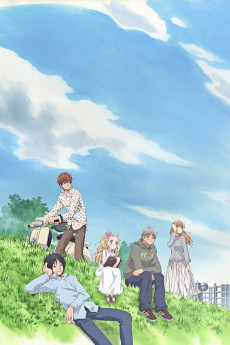 ANIME ComedyHachimitsu to Clover
ANIME ComedyHachimitsu to Clover ANIME MusicFukumenkei Noise
ANIME MusicFukumenkei Noise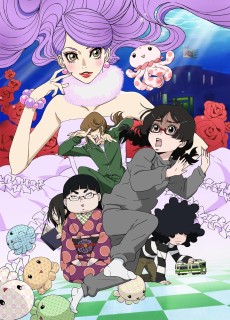 ANIME ComedyKuragehime
ANIME ComedyKuragehime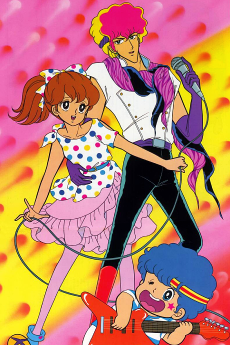 ANIME ComedyAishite Knight
ANIME ComedyAishite Knight
SCORE
- (4.2/5)
TRAILER
MORE INFO
Ended inMarch 28, 2007
Main Studio MADHOUSE
Trending Level 6
Favorited by 11,062 Users

